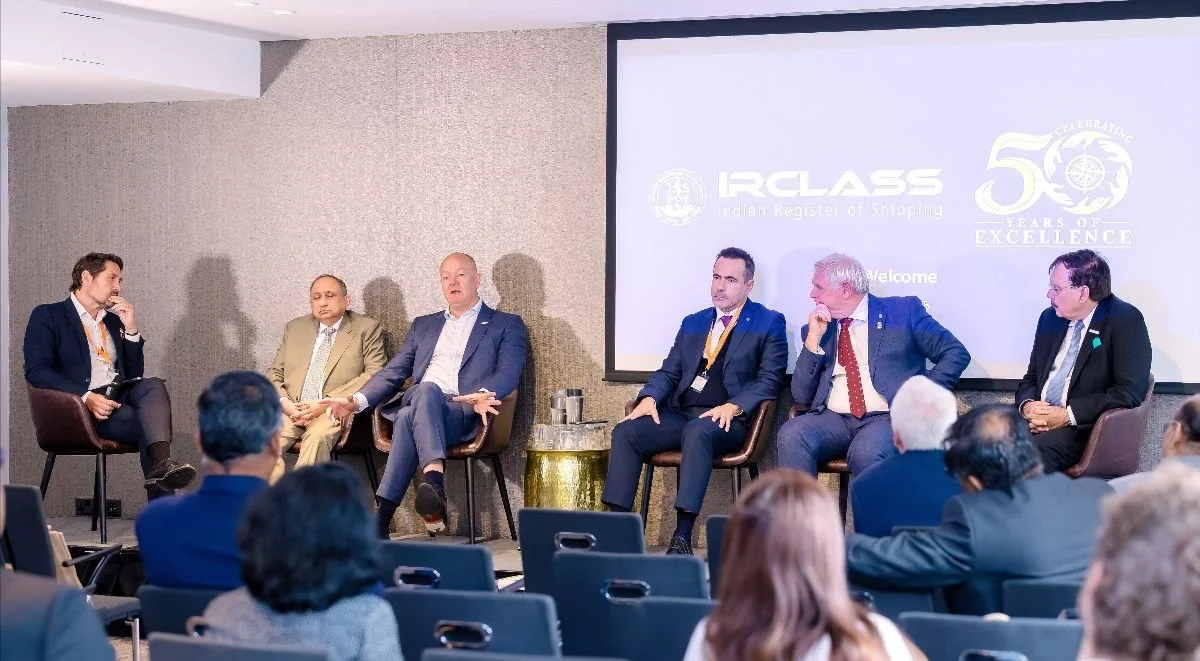IRS at LISW 2025 stresses need for forward-looking strategies in maritime talent attraction
A significant update in outlook is essential if the maritime sector is to tap into the new generation of young talent, a seminar organised by Indian Register of Shipping (IRS) heard during London International Shipping Week (LISW25).
Titled 'Reimagining Seafaring: Elevating Maritime Careers', IRS led the discussion on what the industry needed to do to attract the tech-savvy college and university students towards maritime, when they already had the choice of any number of land-based roles fighting for their services.
IRS has elevated its participation at LISW 2025 as an International Partner – India. The seminar, held at the first ever LISW Global Hub at County Hall, was well attended by industry stakeholders across the maritime spectrum.
Moderated by Raal Harris, Vice President of InterManager, the high-quality panel of maritime experts included Arun Sharma, Executive Chairman of IRS; Andreas Hadjipetrou, Chief Commercial Officer of Columbia Group; Mark Charman, CEO of Faststream; Captain Pradeep Chalwa, CEO and Founder of MarinePALS; and Captain John Lloyd, CEO of the Nautical Institute.
During the keynote address Arun Sharma said: “We need to raise the profile of seafaring by attracting high-quality talent from premier institutes. Once seen as a glamorous and promising career, its appeal has faded over time – we must change that.”
The panel agreed, Capt. John Lloyd saying: “The expectations from young people today are very different than before. As an industry we are still looking backwards rather than forwards. We need the agility to manage this generational shift.”
Andreas Hadjipetrou said the maritime industry needs to shed its perceived inflexibility and act in a completely different way. He commented: “We need to give seafarers the flexibility to move from one company to another.”
Mark Charman added that the old practices of the past need serious updating, saying: “Some recruiting practices are 20 years out of date. Today’s seafarer is coming ashore younger; this then puts a pressure on senior officers as they lose their young seafarers.” Capt. Chalwa stated that seafarers today are far more competent in their skills, however they are burdened with significant administrative work which impacts their ability to deliver.
The seminar concluded with a shared commitment from all panellists that the maritime industry must embrace innovation, flexibility, and modern career pathways to remain competitive with other sectors. By reimagining seafaring and aligning with the aspirations of today’s generation, the industry can not only secure a steady pipeline of skilled professionals but also restore pride and prestige in a career at sea.

